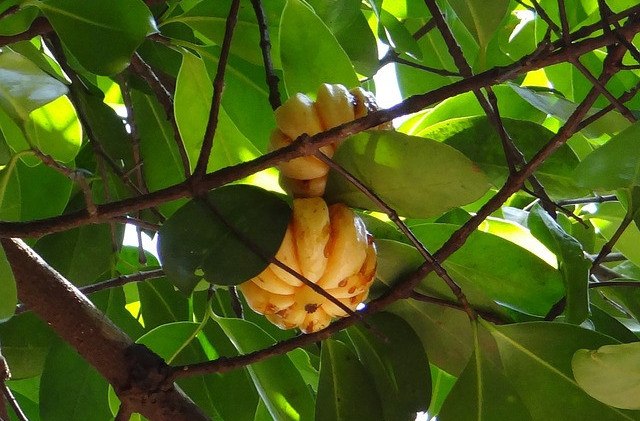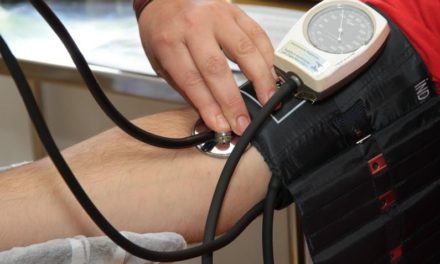Ever heard of the supplement, Garcinia Cambogia? In this article, we will be addressing the question ‘can you take Garcinia Cambogia with high blood pressure?’
There are many things to take into consideration when it has to do with managing high blood pressure to make sure the stage of your blood pressure is under control, and that you are healthy. Of course, regardless of the cause of hypertension much of this has to do with keeping a healthy lifestyle.
Many people use natural supplements to maintain a balanced and healthy body, but natural supplements may have their own risk, and can even interfere with blood pressure drugs.
One of those supplements some consider for better health is Garcinia Cambogia. Here we will check out how Garcinia Cambogia affects hypertension.
What is Garcinia Cambogia?
Garcinia Cambogia is a rare tropical fruit which is also recognized in some part of the world as the Malabar tamarind.
It is a well-known weight-loss supplement. Scientists believe that it has an ability to block the body’s fat production, and it can put brakes on the appetite.
Its ability to lose extra weight may assist in keeping the level of cholesterol and blood sugar in check.
Garcinia Cambogia can be found in bottles as well as in other diet products as an ingredient.
How Garcinia Cambogia Works?
Let’s dig further on how Garcinia Cambogia help with health.
1. The active chemical in Garcinia Cambogia called Hydroxycitric acid lowers blood fat levels and prevents fat build-up by 4 mechanisms.
i. By reducing the fatty acid synthase levels (0 fat producing enzymes) and blocking ATP citrate lyase (an enzyme) that promotes the production of fat.
ii. By reducing protein activity enhances the levels of enzymes that produce fat.
iii. By enhancing the levels of lipoprotein lipase (fat-burning enzymes).
iv. By reducing the production of phospholipids, fat, cholesterol, and triglycerides in the liver.
2. Hydroxycitrate acid lowers appetite, by the following mechanisms.
i. By blocking the enzyme (ATP Citrate lyase) that helps the production of more glycogen in the body and increase satiety feelings.
ii. By enhancing serotonin levels, a neurotransmitter that blocks some feelings of hunger.
3. Garcinia Cambogia fine-tunes the immune system by the following mechanisms.
i. By reducing inflammatory cytokines (TNF-a, CPR, IL-1B).
ii. By reducing and blocking the levels of enzymes that cause inflammation [cyclooxygenase (cox-2), myeloperoxidase (MPO) and inducible nitric oxide synthase (iNOS), 5-lipoxygenase, PGE2]
4. It works as antioxidant acting in the following ways.
i. By increscent in the levels of the antioxidant enzymes [glutathione reductase, superoxide dismutase).
ii. By reducing oxidative stress markers (catalase, protein tyrosine nitration, protein carbonyl (DNPH), butyrylcholinesterase, and malondialdehyde (MDA), and enhancing brain nitric oxide].
Tip: Do you believe taking Magnesium can cause stress and panic? Follow the link to find out what our article highlights.
Hydroxycitric acid can increase exercise performance by reducing carbohydrate breakdown and enhancing fat breakdown, these stores up glucose for exercise.
Why People Take Garcinia Cambogia? Potential Benefits
Here are the potential benefits of Garcinia Cambogia.
-
Weight loss
Many research studies support that Garcinia Cambogia’s ability to reduce weight.
Research carried out on ninety-nine obsessed men. Together with Orlistat (a weight-loss drug), Garcinia Cambogia lowered belly fat, BMI, waist circumference, and overall skin fat in 3 months.
In a twelve weeks study with overweight persons, Garcinia Cambogia reduced about 3.6 kilos weight.
After sixteen weeks, the extract of Garcinia Cambogia reduced total fat, skin fat, and belly fat in a clinical trial on 39 obese individuals.
In eight weeks, research on about one hundred and fifty over-weight and obese persons, Hydroxycitric acid reduced the BMI and body weight by 5% to 6%.
In an 8 weeks research on forty over-weight adults, Garcinia Cambogia reduced skin fats and belly fat more than the placebo.
Nevertheless, not every clinical trial with Hydroxycitric acid has shown an assistive role in losing weight. So, best to treat as the evidence is inconclusive.

-
Lowers blood fats
In a three-month clinical trial on ninety-nine overweight men, together with Orlistat (a weight-loss drug), Garcinia Cambogia reduced the levels of total cholesterol and increased the levels of HDL cholesterol.
In eight weeks of research on 82 obese persons, Hydroxycitric or Garcinia Cambogia reduced the levels of LDL cholesterol by 12.9% and increased HDL cholesterol levels by 8.9% in 60 moderately obese persons. Hydroxycitric acid reduced total cholesterol, triglycerides and LDL level with or without the extracts of Gymnema Sylvestre during an 8 weeks research.
In a sixty days study of 43 overweight women, Garcinia Cambogia decreased the levels of triglyceride by 28%.
In an eight-week study on thirty-five healthy individuals, Garcinia Cambogia reduced the levels of triglyceride and cholesterol more than a placebo.
Nevertheless, Garcinia Cambogia had no impact on the level of blood fat of 86 obese adults undergoing a ten-week clinical trial.
Again, there are some contradictory results, but the overall evidence shows that Garcinia Cambogia can assist in lowering the levels of blood fat.
Other potential benefits without sufficient evidence are below.
-
Lowers appetite
In six weeks of research on twenty-four obese persons, Garcinia Cambogia reduced the level of food consumption and at the same time maintained satiety feelings. After eight weeks, Hydroxycitric acid reduced the level of food consumption in a clinical trial of another sixty moderately obese men.
However, Garcinia Cambogia did not affect the appetite of 89 mildly over-weight adults but reduced their body weight in a twelve-week clinical trial.
In several other kinds of research, after two weeks of taking Hydroxycitric acid, forty-two obese adults lost their weight, but their energy and appetite were not affected.
Because there are just a few studies on smaller populations with mixed results, we have no sufficient evidence to declare that Garcinia Cambogia can lower appetite. Therefore, more clinical trials are still needed to know more about the potential effect of Garcinia Cambogia on reducing appetite.
-
Diabetes
Garcinia Cambogia did not affect in 8 weeks in patients suffering from type 2 diabetes, but it reduces the levels of blood sugar in twelve healthy adults.
Garcinia Cambogia lowered the levels of insulin and leptin in mice and improved the breakdown of blood glucose.
Garcinia Cambogia increased blood sugar storage rates and promote insulin sensitivity. A small research and clinical trials are not enough evidence to back up these possible health benefits. Therefore, there is a need for more strong clinical research.
Tip: This article covers the best coffee creamer options for diabetics.
-
Exercise performance
In a five days study of six male athletes, Garcinia Cambogia reduced carbohydrate breakdown and increased fat burning. This may assist promote endurance performance and at the same time, reverse sparing sugar.
Another five-day study on six untrained women showed that Garcinia Cambogia enhanced fat breakdown and increased exercise performance.
Just two small researchers have evaluated Garcinia Cambogia’s effect on exercise performance too.
However, there is a need for more clinical trials to confirm the introductory results.
-
Inflammation
Garcinia Cambogia decreases inflammatory compounds in obese rats. Hydroxycitric reduces inflammation in rats with colitis (gut inflammation) by blocking the generation of inflammatory molecules and enzymes [myeloperoxidase (MPO), inducible nitric oxide synthase (iNOS), cyclooxygenase (Cox-2)].
In rats with manifold sclerosis, Garcinia Cambogia lowered nerve damage and reduced inflammation. It reduced inflammation compound level (TNF-a Cytokines IL-6, malondialdehyde, and nitric oxide) and boosts the levels of antioxidant enzymes (glutathione reductase, superoxide dismutase).
-
Antioxidant properties
Hydroxycitric acid reduced free radicals in obese rats. This protected the brain, liver, and kidney, measured as decreased oxidative stress markers levels. This suggests Garcinia Cambogia’s antioxidant properties.
-
Stomach ulcer prevention
Garcinia Cambogia reduced the acidity and amount of the stomach fluid while assisting to prevent harm to the stomach. Hydroxycitric acid activated the natural defence of the stomach, assisting in ulcer prevention.
-
Preventing bacterial infections
Hydroxycitric acid (extract of Garcinia Cambogia fruit) prevented the growth of these bacteria;
i. Gut infections (Escherichia coli).
ii. Pneumonia, lung infections (Klebsiella pneumonia).
iii. Blood, urinary, and lung infections (Pseudomonas aeruginosa).
iv. Skin infections, food poisoning, airway infections (staphylococcus aureus).
Nevertheless, these are introductory results that are yet to be replicated in animals and humans.
More research is still needed to decide if Hydroxycitric acid can assist with the treatment of the infections that these microorganisms cause.
-
Diuretic properties
Garcinia Cambogia leaves extracts increased excess fluids flushing, working as a diuretic. This may be part of its effect on weight loss, as herbs used for weight loss normally work as mild diuretics as well.
-
Anti-malaria properties
Bioflavonoids from Garcinia Cambogia terminated malaria-causing plasmodium parasite in mice, a drop in infection rate, and boost mice survival.
Risk and Side Effect of Garcinia Cambogia
Generally, Garcinia Cambogia is safe, but it has some side effects.
According to reports from clinical trials, Garcinia Cambogia has no long-term side effects. The reported side effects are mild, and they include;
- nausea,
- diarrhea,
- headache, and
- symptoms of upper respiratory such as the stuffy nose.
Tip: Did you know essential oils can help lightheadedness and headaches?
However, there are also some reports that the supplement can cause mania, which may include symptoms like grandiosity, rapid speech, and reduced need for sleep, as it is published in the primary care companion for CNS Disorders Journal in April 2016.
Another of its side effect is liver toxicity which may be very dangerous. A case report published by researchers in the World Journal of Gastroenterology in December 2016 issue shows that Garcinia Cambogia is linked with liver toxicity which leads to liver transplantation.
Another side effect to consider is that Garcinia Cambogia has the possibility of interacting with other prescription drugs that can raise the levels of serotonin, including opioid pain medication and antidepressants, because of the impact of the supplement on the neurotransmitter.
Again, Garcinia Cambogia may have additional ingredients that can contribute to adverse events.

4 important steps are below.
1. Stick with a supplement made in Australia, New Zealand, United States or Europe.
2. Avoid if the product contains ephedrine which is used by cheap manufacturers.
3. Verify product quality.
4. Real quality Garcinia Cambogia usually cost over 50 USD per 60 capsules. If that price turns you off financially, you explore another product, per your doctor’s advice.
Tip: Lecithin can help with managing high blood pressure.
FDA Warning!
The FDA issued a warning notification in November 2017 to customers not to buy Garcinia Cambogia premium known as “Frutaplanta life” because it has sibutramine.
Sibutramine is a dangerous substance that raises heart rate and blood pressure. It can be dangerous to individuals with a history of stroke, coronary artery disease, abnormal heart rhythms, or congestive heart failure.
Who Should Not Take Garcinia Cambogia?
If you belong to one, the following categories do not use Garcinia Cambogia.
-
Breastfeeding and pregnant women
The safety of consuming Garcinia Cambogia when breastfeeding a baby or pregnant woman is not guaranteed. Therefore, such people are advised to avoid the use to be on the safe side.
-
Liver disease
Garcinia Cambogia can be dangerous to the liver. It could lead to the continuous damage of the liver in an individual with liver disease. Therefore, do not use Garcinia Cambogia if you suffer from any liver disease.
Does Garcinia Cambogia Affect Your Heart?
A study was conducted to validate the Garcinia Cambogia (Hydroxycitric acid) and flavonoid’s ability on protein metabolism and heart lipid in old and over-weight rats. Thirty female (a year old) rats were used. They were separated into 3 equal groups, group one, which was the control group provided with a basal diet. In contrast, both group 2 and 3 were provided with a diet containing cholesterol (3%) and vegetable oil.
Garcinia Cambogia extract (4.5%) was added to the group 3 diet from the 45th day. After 75 days, all the animal’s heart samples were promptly homogenized and excised. Cardiac/heart total protein, cholesterol and triglyceride concentrations were discovered in the samples post-mitochondrial fractions.
The high level of cholesterol (1.5%) and vegetable oil (10%) in group 2 diet caused an inconsiderable increase in cholesterol and triglyceride levels of heart when compared with group 1 (control group).
Again, feeding with Garcinia Cambogia extract (4.5%) addition to the diet caused no significant decrease in cholesterol and triglyceride levels in group 3 when compared with group 2. The cardiac total protein levels did not show any significance among groups.
All these results show that Garcinia Cambogia extract (Hydroxycitric acid) has a suppressive effect on protein metabolism and cardiac lipid in rats.
According to these findings, Garcinia Cambogia extract (Hydroxycitric acid) could be having a curative role in coronary heart conditions and may act by decreasing cardiac cholesterol and triglyceride levels.
Tip: doTERRA Essential Oil can help you manage high blood pressure better.
Other Types of Supplements You Should Avoid When You Have Hypertension
Below are some of the similar supplements to Garcinia Cambogia you should be cautious when taking in as a high blood pressure patient.
-
Bitter Orange
This supplement is usually used in weight-loss products. It is believed to be Ephedra’s alternative.
Ephedra (which should also be avoided) has been banned in America. However, it does not mean that Bitter orange is safe, just because it is not banned particularly for individuals with high blood pressure and some heart diseases.
Bitter orange can increase your blood pressure, and heart rate and some researchers have linked it to stroke and heart attacks.

-
Echinacea
This supplement helps with flu and cold symptoms, but it can affect the way the body metabolizes different drugs. So, it is important to control your blood pressure with a prescription, and avoiding Echinacea supplement is safer.

Tip: Lecithin can help with managing high blood pressure.
-
Ginseng
Some researches have suggested that this supplement can lower or raise blood pressure.
Many people love Ginseng for its capacity to fight-off-fatigue, lower blood sugar, and even boost the immune system, but its effect on blood pressure is quite dangerous.
Some researches have suggested that the supplement can lower or raise blood pressure.

-
St. Johns wort
This well-known supplement is usually used by people fighting depression. However, this supplement also speeds up the process the body metabolizes drugs. This may cause the body to also metabolize the drug taken for blood pressure so fast that they lose their effectiveness and may lead to high blood pressure.

-
Yohimbine
This supplement was a well-known solution for people with erectile dysfunction. Nevertheless, its popularity has started to decline due to the numerous side effects that come with it.
Among all the side effects of Yohimbine, the most obvious is an increase in the blood pressure of an individual.

-
Green coffee bean extract
It is extracted from unroasted coffee beans, and this supplement may have the content of caffeine, which may interact with other prescription drugs. It can also increase blood pressure. Therefore, you must seek the advice of the doctor before making use of green coffee bean extract to be safe.

Tip: Garlic, Coconut oil and Krill Oil can lower high blood pressure too.
Other Risks Associated With Garcinia Cambogia
As it is with every other supplement, there may be some risk of causing an allergy. It is because Garcinia Cambogia interferes with the production of serotonin, and it may not be advisable to use it together with anti-depressants.
The same way the Hydroxycitric acid (H C A) might affect users blood pressure drugs, it may impact the aspired effects of anti-anxiety medicine and anti-depressants negativity.
It is equally advisable to always evaluate your current medication and supplement before adding Garcinia Cambogia to your daily routine.
Check if you can find any trace of Hydroxycitric acid in any of your ongoing medication, or whether any of those supplements will interfere with the effect of Hydroxycitric acid.
With that, you can call on your regular physician or health care provider to determine what medication, supplement, or vitamin routine will work better for you and your particular needs.
Is Garcinia Cambogia Safe?
Generally, the Garcinia Cambogia supplement is safe.
The ingredients are extracted from a fruit, and they are not dangerous chemicals fabricated in an unknown lab.
Nevertheless, some compounds in the supplements can interfere and interact with other supplements and medications you are presently taking.
Therefore, consulting your physician, assessing your present routines with proper adjustments will warrant taking Garcinia Cambogia safe and effective.
Dosage
There is no regularized dosage for Garcinia Cambogia.
The doses used in clinical trials where it displayed some benefits (although minor) ranged from 300mil of Hydroxycitric acid for two weeks to 1,500mil of Hydroxycitric acid daily for 11 days to a rule of 4grams for the 1st day succeeded by 3grams up to the 10th day.
If you have resolved to take Garcinia Cambogia, it is advisable to take it for only a period of not more than 12 weeks, the time limit that seems to be safe for most users, as reported by the National Center for Complementary and Integrative Health.
But, it is also essential to talk to your doctor, a registered dietitian or a pharmacist first. The FDA also advises customers that are looking for a supplement or weight-loss drugs. Use their guide before making any decision too.
Conclusion
Garcinia Cambogia, a natural health supplement but can affect blood pressure. The extract (Hydroxycitric acid) similar to caffeine increase heart rate and high blood pressure.
When taken together with drugs that are meant for blood pressure, Garcinia Cambogia will weaken the ability of the dosage of the blood pressure drug to be effective. Therefore, it is always important to seek a doctor’s advice before taking Garcinia Cambogia.
Tip: Garlic, Coconut oil and Krill Oil can lower high blood pressure too.









0 Comments